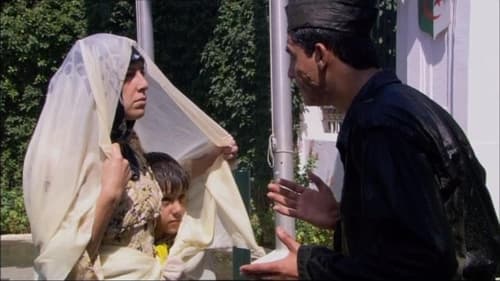Zabana! (2012)
ジャンル : ドラマ, 履歴
上映時間 : 1時間 47分
演出 : Saïd Ould-Khelifa
シノプシス
Algeria's entry for a Best Foreign Language Film Oscar, "Zabana" chronicles the life of Ahmed Zabana, a man who fought for Algerian freedom in the Battle of Algiers. This film chronicles Zabana's fight to free his country to independence, and his death at the hands of French authorities.

On the outskirts of Algiers, Algeria. the arrival of the satellite dishes governs the lives of the inhabitants. Dissatisfied with their lives, they think of themselves as the heroes of American soap opera and movies, so JR, Sue Ellen, Rambo, Kojak, Spock and others take possession of bodies and minds, with many typical American culture elements. These heroes mix in a beautiful funny mess, with tradition and modernism, Islam and television, reality and fiction.

A "Reformed Colonel" is found dead in Paris, a couple of decades after Algeria's struggle for independence was won from France. Lieutenant Galois is assigned the investigation of this murder. She receives the diary of Lieutenent Guy Rossi who served under The Colonel in Algeria in 1956, and has been reported as missing in action since 1957. The revelations found in Rossi's diary go far beyond The Colonel's actions in Algeria, and give an insight on how dirty Algeria's War for Independence really was.

Writer and filmmaker Assia Djebar explores Algerian history, the psychological impact of war, and post-colonial female identity in this 1979 classic of film literature. Named for (and taking its structure from) a traditional song with five distinct movements, the film combines documentary-style observation with loose narrative form to tell the story of Lila, an Algerian expatriate returning to her country 15 years after independence has been won. In comparing her life with the lives and experiences of rural Algeriennes, Lila is able to put her childhood demons to rest and discover a new history -- one written in the ongoing strength of generations of women. Like much of Djebar's writing, the film has a strong subtext dealing with resistance to patriarchy and women's desire to appropriate the means of power and expression -- one of which, of course, is the filmmaker's camera.
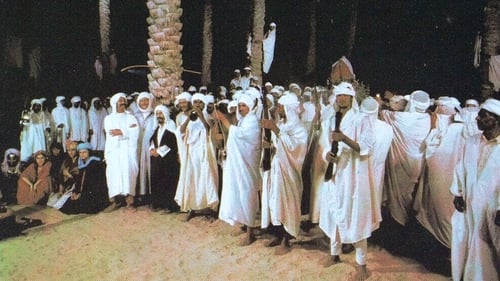
Seen right through the sandstorms that rack the lives of a tribe living on a desert oasis, is a subtle and not-so-subtle mistreatment of the female members of the tribe - tribal chiefs have the right to be the first to deflower virgins, and single or widowed mothers must walk a narrow line of behavior restrictions that do not apply to their male counterparts. Both genders, however, fight the brunt of the harsh desert winds together.
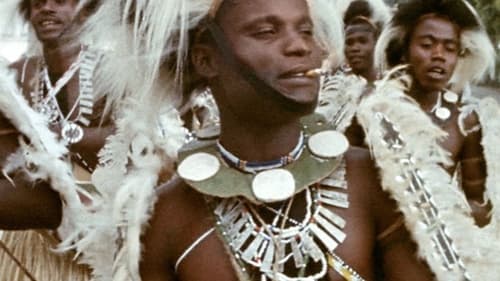
Festival panafricain d'Alger is a documentary by William Klein of the music and dance festival held 40 years ago in the streets and in venues all across Algiers. Klein follows the preparations, the rehearsals, the concerts… He blends images of interviews made to writers and advocates of the freedom movements with stock images, thus allowing him to touch on such matters as colonialism, neocolonialism, colonial exploitation, the struggles and battles of the revolutionary movements for Independence.

On an Algerian beach, kids splash about, sleep, squabble - and then suddenly go to war. And it’s neither Lord of the Flies nor La Guerre des boutons. In her first film, full of grace, Narimane Mari films this childish freefor- all closely, at the irregular pace of an imagination inspired by the highest form of reality, national History — actually, nothing less than the Algerian War of Independence. When their make-believe induces a general upheaval, we follow the flock of children as they stamp their feet up the stairs, invade houses, cross village squares, in a whirlwind of shouts and empty words. Time is stretched like in a dream, through a choreography of belligerent shadows or the night-time explosion of the cemetery, as so many warning signs of dangers to come.
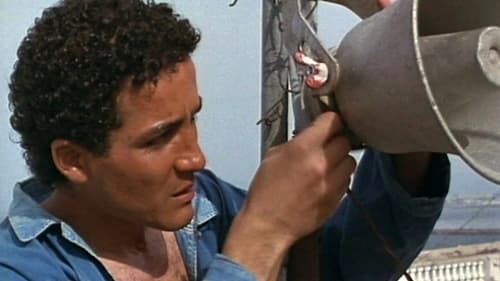
Bab El-Oued, a popular district of Algiers, in 1989, a few months after the riots. Boualem works at night in a bakery and steals the loudspeaker that was installed on his roof and was broadcasting the Imam's word... therefore preventing him from sleeping. This blunder is taken as a pretext by the Islamists to put the district under their control...
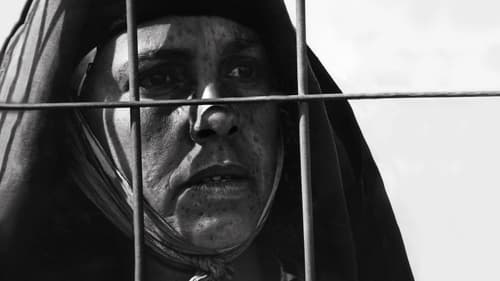
This black-and-white film – the first road movie of Algerian cinema – presents one of the most readily apparent, though subtle, transformations of the daily life of the people of Algeria brought about by the ordeal of French occupation and the war of liberation. With military repression in full force, a peasant woman finds herself alone in her house in the mountains when her only son is taken away by French soldiers soon after her husband is killed in a raid. One day, on seeing a dead chicken, which she considers a bad omen, she decides to leave home, and sets off on a tiring journey through the mountains. With a pair of chickens in tow, she moves from one detention camp to the next in a desperate search for her missing son. The film was inspired by events experienced by the family of its director.
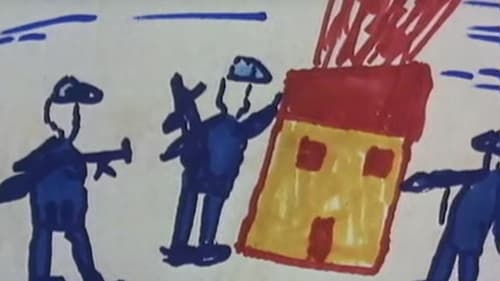
Algerian children, survivors of the war and refugeeing in Tunisian camps, recount the tragic events they have experienced, from drawings they have made themselves.
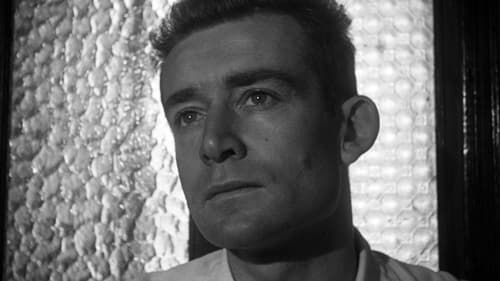
The son of a French colonialist in Algeria returns to Algeria after learning that his father is ill. Memories from childhood return. He also must deal with some problems involving the Algerian fight for independence.

The Desert Ark (L'Arche du Desert), a variation on Romeo and Juliet set in the Algerian desert. A young couple must face inevitable conflict when their rival families discover their secret love. Taking refuge in a cave, they listen to the sounds of a senseless campaign of violence and murder, which is the culmination of the extremism that has long divided their two communities. Nominated for the Golden Leopard at the 1997 Locarno Film Festival.
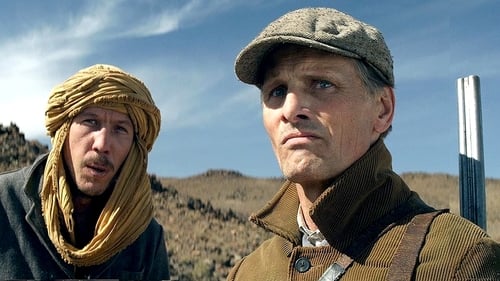
A French teacher in a small Algerian village during the Algerian War forms an unexpected bond with a dissident who is ordered to be turned in to the authorities.

Two deaf and dumb children. She is the daughter of an American Oil engineer. He is the son of an Algerian farmer. They meet and manage to communicate, transcending all the cultural barriers that separate them.

Set amidst the civil war of Algeria in the 1990s, Enough! is the story of two women. Emel is a Westerner whose husband, a journalist, is missing - perhaps kidnapped or even killed for articles he's written.

These are the first images shot in the ALN maquis, camera in hand, at the end of 1956 and in 1957. These war images taken in the Aurès-Nementchas are intended to be the basis of a dialogue between French and Algerians for peace in Algeria, by demonstrating the existence of an armed organization close to the people. Three versions of Algeria in Flames are produced: French, German and Arabic. From the end of the editing, the film circulates without any cuts throughout the world, except in France where the first screening takes place in the occupied Sorbonne in 1968. Certain images of the film have circulated and are found in films, in particular Algerian films. Because of the excitement caused by this film, he was forced to go into hiding for 25 months. After the declaration of independence, he founded the first Algerian Audiovisual Center.

Directed by Abdelaziz Tolbi.

A watershed film, Omar Gatlato held a mirror up to Algerian male culture and the mirror cracked. The title refers to the expression "gatlato al-rujula," or, roughly, "machismo killed him" and the film's mordant insights into male posturing and alienation in Algerian society animate this bit of folk wisdom. In mock documentary style, a young man recounts with wry commentary a typical day in his life in the Bab el-Oued quarter of Algiers, while the camera playfully shows a different story. In following Omar and his friends in their pursuit of happiness, the film examines with shrewd humor the gang values of urban youth; their passion for popular culture (soccer, "Hindoo" movies, Rai concerts), their hidden fear of women, and their social insecurity in an environment where they are marginalized.
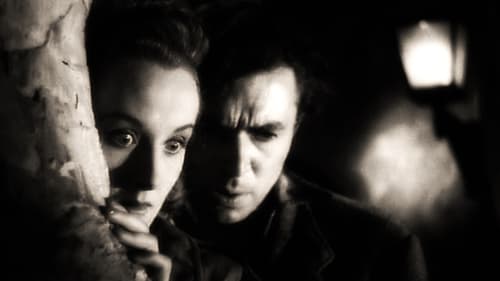
Candlelight in Algeria is a 1944 British war film directed by George King and starring James Mason, Carla Lehmann and Raymond Lovell. This drama follows the exploits of Eisenhower's top aide, Mark Clark, and other important Allies as they journey to an important meeting held on Algeria's coast. The precise location of this vital secret gathering is upon a piece of film which must not fall into enemy hands

Newly-arrived Ahmed tries to integrate his family to the canadian society, while attempting to control his son's life orientation.

After a conviction for theft, Merwan was expelled from France, where he had lived since the age of one, to Algeria, his country of birth. In a foreign country of which he knows neither the language nor the customs, he finds himself stripped of his belongings and on the street.




















